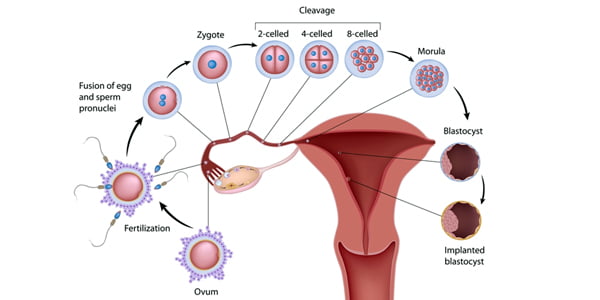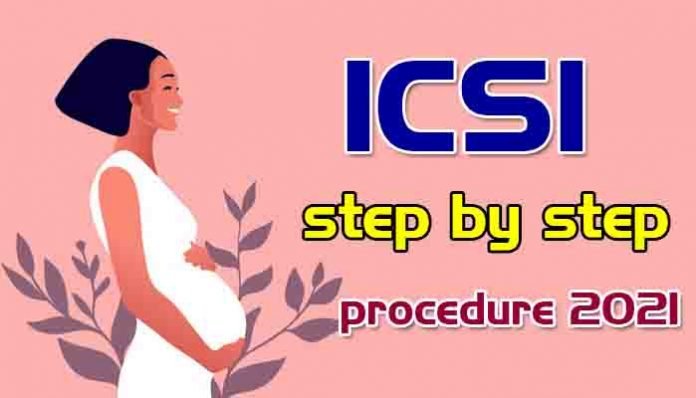Intracytoplasmic Sperm Injection (ICSI): ICSI is an IVF process wherein a single sperm is inserted into an egg. Following this process, the egg gets fertilized, becomes an embryo. This embryo is placed into the woman’s uterus. This technique helps couples achieve fertilization.
Table of Contents
Intracytoplasmic Sperm Injection (ICSI) Procedure Step By Step

This procedure needs a matured and developed egg by a female who undergoes ovarian stimulation with fertility medicines. It is essential to select healthy and robust sperm before carrying out the ICSI process. Before the embryo or fertilization takes place inside the woman’s womb, the males’ sperm has to penetrate the inside of the egg through the outer layer of the egg.
Sometimes Males’ sperm is not able to enter into a woman’s egg as its outer layer would be thick or hard to go through. As a result, fertilization will not take place. In such scenarios, ICSI (Intracytoplasmic Sperm Injection) is helpful along with IVF (In Vitro fertilization) to fertilize the egg.
A lot of male partners select this process to increase the chances of fertility. With help of ICSI (Intracytoplasmic Sperm Injection) and IVF, a sperm is injected inside the egg (cytoplasm) to make fertilization happen.
How ICSI functions
With IVF, an egg can be fertilized in two ways. One is the conventional IVF way, and the other is ICSI. In conventional IVF, more than 50,000 sperms are placed near the egg in a container in a lab. Fertilization happens when one of the sperms penetrates the egg (cytoplasm).
In The ICSI (Intracytoplasmic Sperm Injection)process, sperm is inserted into the egg through a small needle called a micropipette. When an egg is fertilized or an embryo is formed with conventional IVF or ICSI, the embryo takes around 4 days to grow before it is placed inside the women’s uterus.
In Vitro Fertilization (IVF ) Complete Detail
Who would choose ICSI?
As many of our lifestyles are becoming sedentary, lack of physical activities, consumption of alcohol and smoking, work pressure, males’ sperm quality, and quantity is deteriorating. Thereby male encounters fertility issues and have unhealthy sperms and low count of sperm. ICSI helps to surmount fertility issues.
Therefore, people who have the below issues can opt for the ICSI method.The ICSI process is considered to be an essential method for those who have infertility issues. If you have gone through vasectomy reversal, then the ICSI method is suggested as sperm has antibodies that result in fertilization.
- Males producing low sperm
- Moving of sperm is not in a normal way
- The sperm may not penetrate the egg
- Any issues in the male reproductive tract that prevents sperm from emerging out
- However the condition of sperm, the egg is not get fertilized by conventional IVF
- The preserved or stored eggs are used
How many eggs can be injected?
We need to know that matured eggs can be fertilized with sperm. The IVF labs can analyze the maturity of an egg. The fertilization with immature eggs is quite low.
Success rates of ICSI (Intracytoplasmic Sperm Injection) work
With ICSI, the success rate of fertilization would be 50% to 80%. However, certain issues would occur during or post ICSI process. After sperm is inserted into the egg, the egg may not show any growth or become an embryo. Thereby the embryo doesn’t grow. A few or all of the eggs perhaps get damaged.
Does ICSI cause any effect on the baby?
There is a 1% to 3% chance that a baby would have a birth defect. The birth defects that happened with the ICSI process are more or less equal to IVF. However, it is mildly higher than in the natural method.
Owing to genetic defects, children may encounter infertility issues if their fathers have the same issue. It is like a genetic disorder. Thereby, children who are born through the ICSI process may have fertility issues as their fathers have.
The risks of birth defects probably are on account of fertility issues and not the treatment one does go through. The survey done by the US says that ICSI is a relatively safe and efficient process for infertility. However, it may have the risk of transmitting genetic defects to their infants.
Difference Between In Vitro And In Vivo Fertilization










